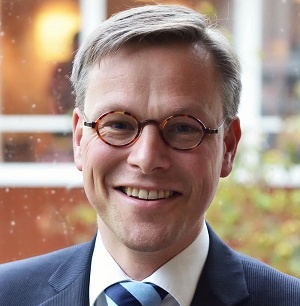The Netherlands prides itself on its relative social equality, especially the kind engineered by the tax code. However, Dutch tax policy is creating profound inequality between families based on their lifestyle choices. The tax system hurts families by imposing a greater burden on families with stay-at-home mothers than on homes where both parents engage in paid employment – even if that employment earns the same amount of income. This inefficient and illogical program results in de facto governmental and fiscal pressure for both parents to work outside the home.
Under the Dutch tax system, up to the first €20,000 a person earns is taxed at a rather low rate, whereas every salary totaling €67,072 and up pays a 52 percent tax rate. However, this applies only to individual incomes, not family incomes. If one spouse earns all the household income and the other spouse stays home, that family pays a significantly higher rate than a family where both parents work – even if they earn the same amount of money. The result is that everybody needs a part-time job, but working beyond a certain point is virtually useless from a financial perspective.
Let us take an example of two typical families – comprised of a father, a mother, and two children – living in the same street. In the Jones family, both father and mother work part time. They each earn €20,000 a year. Because of fiscal policy, they pay only €1,998 in taxes. Next door at the Smith family’s residence, Mrs. Smith stays at home to take care of their young children, while her husband earns €40,000 a year.
With the exact same gross family income and the same number of dependents, the Smiths will have to pay €10,172 in taxes — more than five times as much as their neighbors! If only Mrs. Smith got a little job, and Mr. Smith stayed home for one day a week, their fiscal and financial storm clouds would lift.
The price is being paid, quite literally, by stay-at-home mothers and their spouses, who are being punished financially for the way they organize their family life. Mothers who take their children to childcare receive lower tax rates, as well as hefty subsidies.
Humans always enter this world in a network of relationships, with their mother and father, brothers and sisters, neighbors and fellow citizens, in a specific context of time, place, and community.
Despite the evident injustice in this tax regime, a protest by two smaller Christian political parties (the ChristenUnie and the SGP) has had no effect at all. The Ministry of Finance has confirmed the accuracy of the figures cited in the example above, and a liberal website, The NRC, fact-checked the claim that the Smith family pays five times as much in taxes, concluding it was true. Yet nothing has changed. On the contrary Nibud, the National Institute for Family Finance Information, launched a tool to help people calculate the optimum division of labor between partners. The response has been, not to change the policy, but to tell families to get used to it.
This appears to be a case of the childless majority imposing its views on the child-bearing minority via economic coercion. The underlying message is that people find their primary identity in their paid work, rather than family or volunteer work. Each partner’s financial independence is particularly important when marriages end in divorce, but it downgrades the invaluable work of mothers who raise children and thus assure the future of Dutch society.
The effects are an ever-declining birth rate – which now stands at just 1.68, below replacement level – and more and more people working part time. The typical Dutch couple in their thirties will work, at most, four days a week; usually, the woman works less than that. Of course, this has a problematic effect on the job market, since it is difficult to organize companies, schools, and hospitals with people working part time. Having one’s children raised by childcare workers also adds its own stresses.
While the advocates of this ideology present themselves as defenders of individual liberty, they are in fact limiting the ability of grown adults to organize their family life in a way they prefer — a way, incidentally, that has provided children with a safe haven since time immemorial. The policy treats income unequally, taxing the same salary, shared among the same number of people, differently. But there is a deeper level to explore.
At the very heart of this tax policy lies the conviction that human beings are essentially individuals. The tax system embodies the notion that we should only regard people as atomized units, not as persons living together in families and social structures. This defies the obvious fact that humans always enter this world in a network of relationships, with their mother and father, brothers and sisters, neighbors and fellow citizens, in a specific context of time, place, and community. Without these relationships, no individual could ever truly become a person, since the people who surround us teach us our language and instill in us our culture, patriotism, and sense of duty. Because they are best suited to raising their own children, and assuring those children grow into well-balanced grown-ups, stay-at-home mothers should be cherished, rather than punished, even from an economic perspective.
At a minimum, the tax code should stop punishing fathers who sacrificially provide for their families and mothers who give up a career to become homemakers.
One can only fear for future generations if tax policy continues to punish mothers for making their own children their life’s priority.
(Photo credit: AFS-USA Intercultural Programs. This photo has been cropped. CC BY 2.0.)




